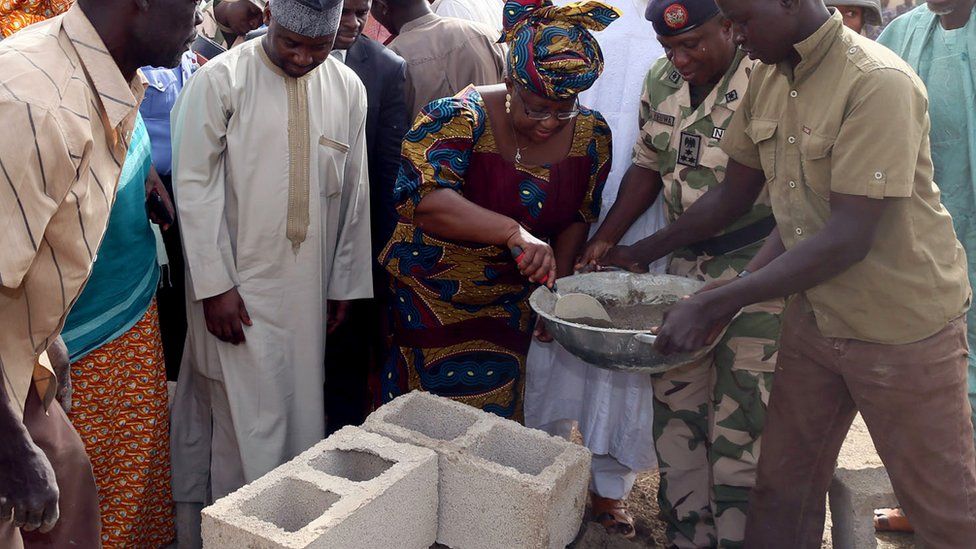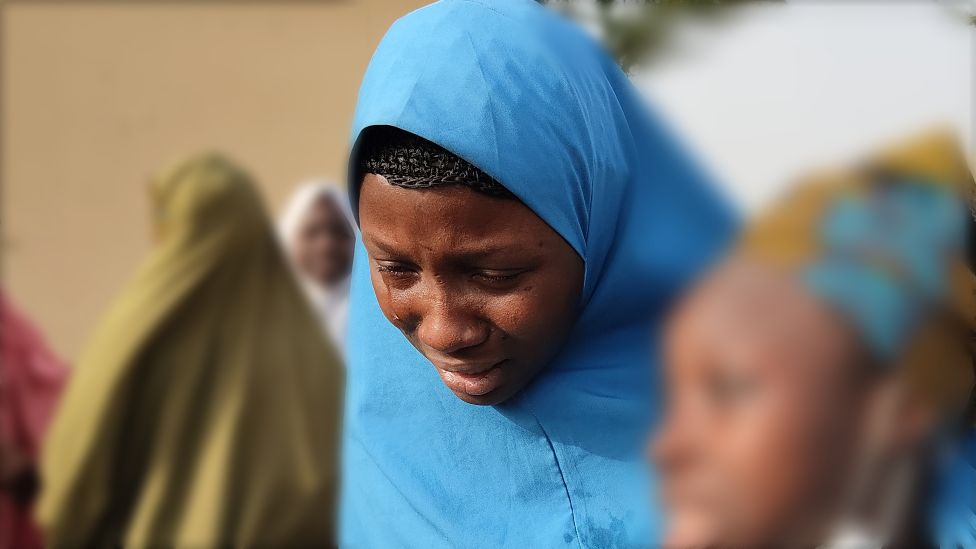culled from BBC News, Abuja Written by Nduka Orjinmo
The kidnapping of hundreds of Nigerian schoolgirls from Chibok seven years ago led to the launching of a multi-million dollar plan, backed by a former UK prime minister, to bolster security at schools – but it failed to stop abductions and protect children.
The swirl of dust thrown up as a helicopter came down to land heralded a high-level visit to Chibok in March 2015.
Ngozi Okonjo-Iweala, Nigeria’s finance minister at the time and now head of the World Trade Organization was received by a waiting crowd of community leaders and parents whose daughters had been kidnapped.
She was in Chibok to lay the first bricks in a project to rehabilitate the Government Secondary School that had been destroyed by Boko Haram militants on that infamous night of 14 April 2014.

Source: GETTY IMAGES
There was a short speech, then trowel in hand she scooped mortar from a pan held mid-air by two assistants and joined two bricks at a 90-degree angle.
With the job done there were a couple of handshakes and pictures, then she was gone in another haze of dust.
Mrs Okonjo-Iweala’s presence there was part of an international response following the mass abduction of 276 girls by Islamist militants in Chibok in 2014.
World opinion was galvanised under the hashtag #BringBackOurGirls – and the UK’s former Prime Minister, Gordon Brown, spearheaded the $30m (about £22m) Safe Schools Initiative (SSI) – along with UN agencies, the Nigerian government, and private business leaders.
Five hundred schools would be protected: there would be new classrooms; there would be fences; there would be armed guards.
“The aim of the plan is to ensure that young people are not only safe in going to school but that we also provide an environment ripe for learning, growth, and development free of fear,” Mr Brown said in May 2014.
It all sounded so good, but seven years on, the 500 schools have not been protected and the classrooms have not been built.
Source: https://www.bbc.com/news/












